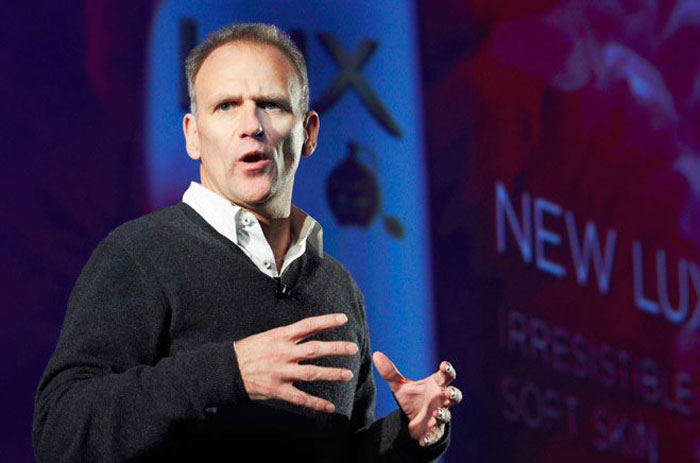Dave Lewis is to take over as Tesco chief executive. He will become the first outsider to run Tesco and will be tasked with turning around the ailing retailer.
Reuters/London
Tesco is to ditch chief executive Philip Clarke and replace him with a turnaround specialist from Unilever, ending a disastrous three-year reign as Britain's biggest retailer warned it would again miss profit forecasts.
Just three weeks after backing Clarke at Tesco's annual shareholder meeting, Chairman Richard Broadbent said on Monday it was now time to hand over to a new leader "with fresh perspectives and a new profile."
Clarke, who has spent more than £1bn ($1.7bn) on a failed recovery plan in Tesco's main home market, will be succeeded on October 1 by Dave Lewis, who is credited with revamping a succession of businesses at consumer goods group Unilever and is currently its global president of personal care.
A party scheduled for Tuesday to celebrate Clarke's 40 years at Tesco was promptly cancelled.
Analysts said the appointment of a non-retailer and the first outside CEO in Tesco's 95-year history could herald a major strategy re-think at the world's third-biggest stores group, which could include big price cuts to win back customers.
"A material change in UK trading strategy cannot be dismissed, which is likely to have considerable implications for the rest of the British sector," said Shore Capital's Clive Black, who upgraded his rating on Tesco stock to hold from sell.
The darling of the retail sector during two decades of uninterrupted earnings growth, Tesco started losing ground in the UK in the final years of long-standing CEO Terry Leahy's tenure. Clarke issued his first profit warning in January 2012.
More recently, it has been squeezed between discounters Aldi and Lidl at one end and upmarket grocers such as Waitrose at the other, and hurt by the slowest growth in the overall UK grocery sector for over a decade.
Its attempts to respond were hampered by its exposure to large out-of-town stores in the UK at a time when more shoppers are buying online, and costly mistakes abroad including a failed expansion into the US, originally a Leahy initiative.
Clarke, who started at Tesco as a teenager stacking shelves in a store managed by his father, fought back with a wide-ranging plan including trimming prices, revamping stores and product ranges and investing in internet shopping and technology such as the Hudl tablet. But the firm's market share and share price have continued to decline.
One former Tesco director said Clarke, 54, "confused activity with progress", took a series of "short-term knee-jerk decisions" and had failed to listen to colleagues. "Phil has never listened, Phil is a teller," he said.
According to researchers Kantar WorlDPAnel, Tesco's market share dropped to 28.9% in June from 30.7% when Clarke took over in March 2011. During the same period, Aldi grew to 4.7% from 2.1% and Lidl to 3.6% from 2.5%, while Sainsbury's and Wal-Mart's Asda - Tesco's main rivals - remained largely stable.
Analysts said Lewis' 27-years at a major supplier to the retail sector could help negotiate better prices and that his experience with branding could help a company that was no longer associated by many Britons with either low prices or quality.

